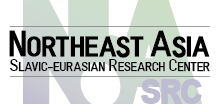Not only practitioners of Border Studies but also producers of policy have much to gain from thinking BIG was the gist of Professor Emmanuel Brunet-Jailly’s (University of Victoria, Canada) presentation at the recently organised UBRJ seminar. BIG is the catchy sounding acronym for Borders in Globalization of which Professor Brunet-Jailly is the director. Twenty-five teams based in 15 countries make up the project which comprises 63 researchers and 154 students. Supported mostly by a multi-million Canadian dollar grant from the Social Sciences and Humanities Research Council of Canada, the speaker explained some of the project’s latest research to a twenty-strong audience.
The two main aims of BIG are 1) to destabilize understandings of borders as ‘territorial power containers’ and 2) to rethink borders as defined by ‘bordering flows’. The speaker neatly summarised the meaning of territorial power containers as the idea that each state is a ‘castle’ with high walls protecting it from external threats. Such an idea gives the illusion of the rule of states. Bordering flows are what the speaker envisions as disturbing this illusion. Professor Brunet-Jailly gave the example of an industry dominated by one or two large firms. The firms’ operations might be located in two different states. Because the regulatory framework adjusts so that standards become similar across the border, actual boundary lines become irrelevant. The speaker’s bigger point was that the private sector is increasingly involved in developing standards and then lobbying governments. Policy-making is becoming ever more complex and the boundaries and territories that organise the world are starting to fragment. Such is the brave new world borders in globalization are forming.
Professor Brunet-Jailly’s talk generated a lively discussion with the audience. Questions ranged from the historical (how ‘new’ are such bordering processes considering that empires have been in the business of standardizing norms for hundreds of years?) to the contemporary (what is the role of economic value in influencing how much attention a borderland receives?). The seminar finished with an exchange about the future of border studies with one of the attendees imploring funding bodies in Japan to think of borders as having a contribution to make to the current demand for ‘global studies’. Learning about Professor Brunet-Jailly’s research was therefore a useful prompt to the audience to think big when trying to make that intervention.
(Jonathan Bull)

 Eurasia Unit for Border Research (Japan)
Eurasia Unit for Border Research (Japan)




